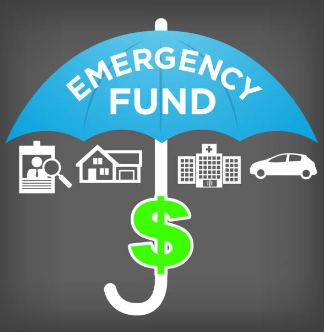Budgeting for Freelancers: Managing an Irregular Income
WEALTH BUILDING
5 min read


Understanding Irregular Income
Freelancers and gig workers often encounter the complexities associated with irregular income. Unlike traditional employees who receive a steady paycheck, freelancers may find their earnings to fluctuate significantly from month to month. This is primarily due to varying workloads, project completion timelines, and client payment cycles. As a result, the income generated can be unpredictable, leading to financial uncertainty and stress.
One fundamental challenge posed by irregular income is the inconsistency in cash flow. Freelancers may experience periods of abundance followed by phases of lean earnings, which makes it difficult to budget effectively. For instance, a freelancer could secure several lucrative projects in one month, only to have little to no work in the subsequent month. This variability can complicate the management of essential expenses, such as rent, utilities, and groceries, resulting in potential financial hardships if not appropriately navigated.
Irregular payment cycles can add another layer of complexity to a freelancer's financial landscape. Clients may have differing payment terms; some may pay upon project completion, while others may require invoicing and payment processing times that extend the wait for funds. This inconsistency can lead to cash flow gaps, necessitating the need for strategic planning and proactive financial management. Understanding these nuances is crucial for freelancers aiming to establish a solid financial footing.
Many freelancers experience seasonal variations in their income streams, which can be influenced by industry trends or economic shifts. For example, a graphic designer may find that work increases during certain times of the year, such as around holidays or major events. Recognizing these patterns is essential for freelancers to prepare for periods of lower income and to capitalize on times of heightened demand.
Creating a Flexible Budget
For freelancers, managing an irregular income can pose unique financial challenges. To navigate these challenges successfully, creating a flexible budget is essential. This budget should account for fluctuating income and provide a roadmap for both essential and non-essential spending. The first step in crafting this flexible budget is tracking income and expenses diligently. Utilizing tools such as spreadsheets or budgeting apps can facilitate this process and provide a clear picture of your financial situation.
Next, categorize your expenses into essential and non-essential spending. Essential expenses include rent, utilities, groceries, and healthcare, while non-essential expenses cover discretionary spending, such as dining out, entertainment, and hobbies. Understanding the distinction between these categories allows freelancers to prioritize their spending, ensuring that essential needs are met first, even during lean months.
After categorizing, it's crucial to allocate funds for upcoming lean periods. Many freelancers experience cyclical income fluctuations, making it important to create a buffer. A general guideline is to save a portion of your income during peak periods, specifically targeting 20-30% for your emergency fund. This allocated fund can cover expenses during months with low income, helping to maintain financial stability.
In addition to personal tracking methods, consider leveraging budgeting tools designed for freelancers. Apps such as Mint, YNAB (You Need A Budget), and FreshBooks not only help in tracking expenses but also offer additional features like invoicing and financial health reports. By utilizing these resources, freelancers can gain insight into their financial habits, making it easier to adjust their budgets as needed.
Creating a flexible budget tailored to your unique freelance income will lay the groundwork for financial resilience. By consistently reviewing and adapting your budget to reflect income variations and spending habits, you can better manage your finances, ensuring both immediate needs and long-term goals are met.
Building an Emergency Fund
For freelancers, managing an irregular income can pose significant financial challenges, making the establishment of an emergency fund essential. An emergency fund acts as a financial safety net, providing security during lean periods or unforeseen expenses. Experts generally recommend saving enough to cover three to six months' worth of living expenses. This cushion allows freelancers to navigate the uncertainties of their income without anxiety.
Building an emergency fund requires deliberate planning and consistent effort. A practical first step is to assess your monthly expenses, including rent, utilities, groceries, and other essentials. This assessment helps determine a realistic target for your emergency savings. Once you have set a goal, consider incorporating it into your budgeting strategy. You might allocate a certain percentage of each payment you receive into a separate savings account designated specifically for emergencies. Automating this transfer can make the process seamless and less prone to forgetfulness.
It is also beneficial to gradually increase your emergency savings whenever possible. For instance, during prosperous months with higher income, you can contribute a larger portion to your fund or make one-time deposits when you receive windfalls, such as bonuses or project completions. This proactive approach ensures that your safety net grows when you have the means to do so.
Accessing your emergency fund should be straightforward, especially if you maintain it in a high-yield savings account. This allows for quick withdrawal without significant penalties or delays. Real-life examples abound of freelancers who have relied on their emergency funds during challenging financial periods, such as unexpected medical expenses or inconsistent client payments. By having a financial cushion, these individuals were able to focus on rebuilding their businesses, rather than being overwhelmed by immediate monetary pressures.
Tax Planning and Financial Tools
Freelancers and gig workers experience a unique set of financial challenges, particularly when it comes to understanding and managing their tax obligations. Unlike traditional employees, freelancers do not have taxes withheld from their paychecks, which necessitates a proactive approach to tax planning. One of the most crucial aspects of freelancing is the requirement to pay estimated quarterly taxes. These payments are generally due four times a year and are based on expected annual income, allowing freelancers to avoid penalties and interest that can accrue from underpayment.
Freelancers should familiarize themselves with deductible expenses that can significantly reduce taxable income. Common deductible expenses include costs associated with home offices, supplies, software, education, and certain travel expenses related to work. Maintaining accurate records of these expenses is vital, as it substantiates claims and minimizes the taxable income reported to the Internal Revenue Service (IRS). Utilizing accounting software can simplify this process, making it easier to track income and expenses, generate necessary reports, and prepare for tax season.
Numerous financial tools are available to assist freelancers in managing their finances efficiently. Popular options include QuickBooks, FreshBooks, and Wave, each catering to different needs and budgets. These platforms facilitate expense tracking, invoice creation, and payroll processing while helping freelancers keep an eye on cash flow. Additionally, tax-specific software, such as TurboTax or H&R Block, can streamline tax preparation, guiding users through the seemingly complex tax system, ensuring compliance, and maximizing deductions.
By leveraging effective tax planning and financial tools, freelancers can navigate the intricacies of their tax obligations with confidence, leading to more effective financial management and ultimately greater peace of mind. Proper planning not only prepares freelancers for tax season but also empowers them to manage their irregular income more efficiently.






